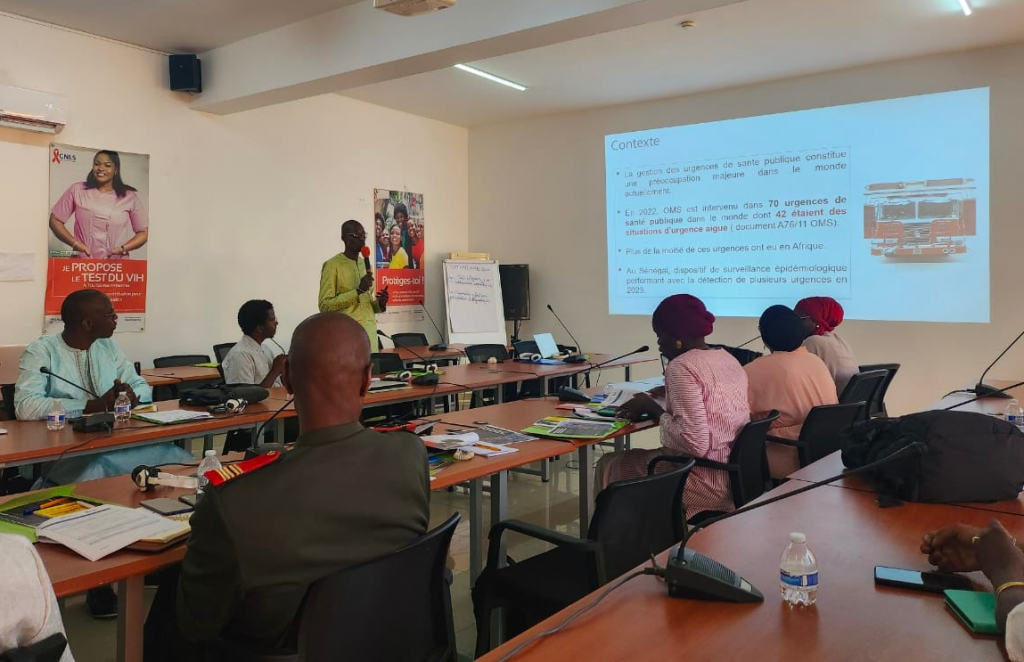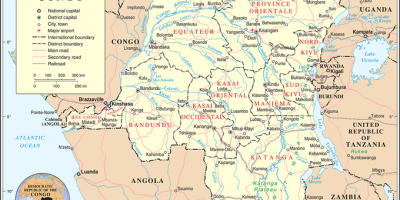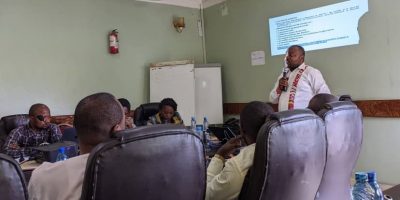How can social science strengthen Senegal’s epidemic preparedness and response? On 8 December 2023, CRCF Senegal and the Centre des Opérations d’Urgence Sanitaire (COUS) organised a roundtable in Dakar to facilitate reflection on epidemic preparedness and response in Senegal, and the role played by the social sciences in this process.
The roundtable brought together researchers and stakeholders involved in epidemic response from academic institutions (UCAD in Dakar, Université Alioune Diop in Bambey), the United Nations (WHO), humanitarian organisations (Red Cross), community stakeholders (Réseau des Acteurs Communautaires), civil society organisations (REVOCAP) and government partners of the Ministry of Health (Direction de la Planification de la Recherche et de la Statistique, Direction Régionale de la Santé Publique, Service National d’Éducation et d’Information pour la Santé, SAMU).
Chaired by Dr Tidiane Ndoye, research professor in socio-anthropology, the roundtable included the WHO representative, Dr. Anthony Billaud, the humanitarian sector representative, Baytir Samb, President of the Community Stakeholders Network in Dakar, academics, and civil society stakeholders, who drew on their own experiences to identify the issues involved in preparing for and managing epidemics in Senegal, as well as thoughts on how to improve epidemic preparedness.
Consensus was reached on the following points:
- Strengthen community response: The role of community stakeholders is crucial in managing an epidemic. As part of epidemic preparedness, community players, who are often inadequately equipped, should receive training in the emergence of epidemics and their consequences. The status of community player should be strengthened to improve the co-construction of epidemic responses with players at all levels of the healthcare system.
- Improve communication between stakeholders: a community organisation shared an ongoing experience of using new information and communication technoligies through a partnership with academics to detect epidemics early using Artificial Intelligence.
- Fight infodemic and infox: a partnership between the various players involved in the response is needed to centralise information and transmit reliable messages to the population.
- Contextualise public health measures to avoid top-down approaches to epidemic response.
- Document strategies and lessons learned from previous epidemics, considering vulnerable populations.
- Strengthen the role of the social sciences in epidemic preparedness and response, involving other specialties in addition to anthropology.
Based on participants’ experiences, the workshop also identified priority themes for research and emergency preparedness in Senegal, including:
- Perceptions, attitudes, and social practices around epidemic preparedness in Senegal
- Evaluation of humanitarian interventions during epidemics
- Perceptions and attitudes of healthcare personnel regarding the involvement of community players during epidemics
- Attitudes and practices of community players in preparing for and responding to epidemics
- Analysis of communication strategies during epidemics.
The workshop also led to the writing of a strategic note on preparedness and response in Senegal, which integrates the exchanges and recommendations formulated during the round table.





